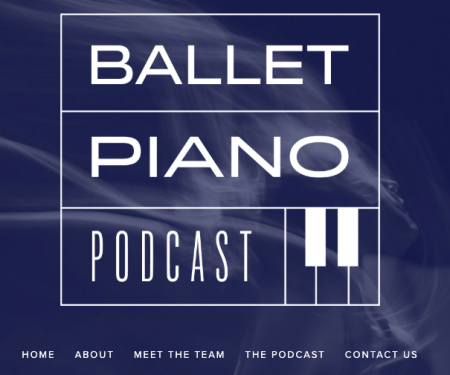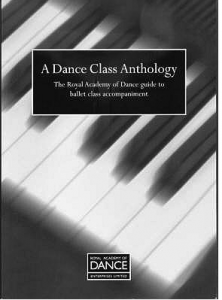
My enthusiasm and admiration for the Ballet Piano Podcast, which I posted about a few weeks ago, continues to grow. Talking to Matt Gregory the other day, I said that I might get round to transcribing one of the podcasts, for some people (I’m one of them) a transcript can be more accessible than listening—particularly, it occurs to me, if English isn’t your first language. Also, if you’ve heard the podcast and want to go back and find a particular passage, it’s much easier to search text than scrub through audio. I also happen to love transcribing (if you think I’m kidding, see my eulogy to USB foot controls, and blog post on transcribing methods. That’s one of the reasons I loved Kate Atkinson’s Transcription. Transcribing is not a simple matter of taking down content by dictation, it raises all kinds of fascinating issues and questions along the way.
So when Matt mentioned that my name cropped up in this week’s podcast, I was too proud not to get straight down to transcribing it. Download the transcript of the latest podcast from the Ballet Piano Podcast here:
Transcribing this podcast gave me a chance to reflect on just how good Ballet Piano Podcast is. It’s got David Yow as legendary experienced teacher (and also one of the most serene people I’ve ever worked for), three pianists, of whom one (Matt) is also a dancer, so you have a rounded and respectful view of both dance and music. There’s also a wealth of experience from both the vocational school and company side. To be really valuable, you need to know about both fields.
If I’m really honest, I don’t really share this team’s enthusiasm for adage (see an older post for why) but I learned a lot from listening to (and transcribing) this podcast. Trying to describe the difference between adage and ports de bras music is quite difficult in musical terms, but hearing David Yow describe it this way, made it so obvious:
The fuller it [the music] is, the better, because that’s exactly what the movements are like, the biggest, the fullest movement that you can do.
If you’d asked a lot of musicians (or some teachers, who’ve been led to believe that you can categorize exercises by time signature), they’d say “a slow 6/8, like a barcarolle.” I remember asking a teacher once what she thought adage music should be, and she said “it should express infinite hope.” Try finding that in your musical dictionary, but it’s inspired me for years.
Ballet piano nerves
There is so much in the discussion that I can relate to. Here’s Akiko & Chris Hobson talking about the sheer physical and mental effort of playing for classes in new situations:
Akiko: I remember when I started, I played for one class, you know, one hour and a half or so. After one class, I was so tired, I was so hungry, and I just wanted to have a nap.
Chris: I still get nervous now, if I’m going to a new company where I know I don’t know the ballet master and I might not know any of the dancers, I still get nervous, maybe two decades in, I don’t think it’s ever going to leave.
As I heard that, I remembered a time a few years ago when I was playing for a visiting company in London. It was just four days when I had to turn up, play for an hour or an hour and a quarter around lunchtime, and then I was free. In theory, perfect for someone who needs several hours in the day to do a PhD. But no: from when I woke up til when class started, I fretted about what I was going to play, and who for (it was three different teachers over four days, none of whom I’d worked with before). And when I’d finished, I was so exhausted mentally (and already thinking about how to make the next day interesting), that it was difficult to settle to anything else afterwards. It was a long time before I realized that summer schools are so exhausting, even if your workload is light: it’s not the number of hours, it’s the intensity of having to instantly form effective working relationships with several new people. It’s a strain for the teacher as well, who also has to deal with the new group of dancers in front of them, and sometimes as a pianist, it feels like you’re the lightning conductor for the tension in the room.
A Dance Class Anthology

One last thing: it’s worth mentioning that The Dance Class Anthology, which Chris Hobson mentions towards the end of the podcast, is now back in print again, and available from the RAD Enterprises—though until the Covid-19 lockdown ends, they can’t dispatch any orders.

